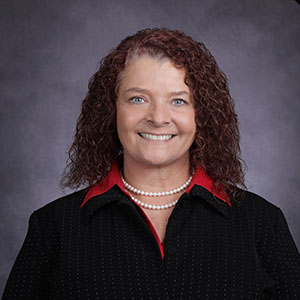 (AGENPARL) - Roma, 7 Giugno 2023
(AGENPARL) - Roma, 7 Giugno 2023(AGENPARL) – HAMMOND mer 07 giugno 2023
A family nurse practitioner (FNP) or advanced practice registered nurse (APRN) is an advantageous occupation because it allows an extent of autonomy and diagnostic privileges when treating patients. But in Indiana, a caveat comes with providing that care.
State legislation mandates that these nurses may only provide prescriptions when they are signed to a physician agreement. This means these advanced practice nurses can only prescribe medication when they are under a practicing agreement with a physician at a particular practice. The legislation also mandates the physicians have to review 5% of prescriptive charts retrospectively every year.
Purdue University Northwest’s (PNW) College of Nursing is a sponsor through Hoosiers for Health Care Access to help advocate for state legislation expanding advanced nurse practice and care to meet health care needs, particularly where there are shortages among vulnerable populations. Jodi Allen, assistant professor of Nursing and FNP program coordinator, and Julia Rogers, assistant professor of Nursing represent the College of Nursing in this coalition, as well as through partner organization Coalition of Advanced Practice Registered Nurses in Indiana (CAPNI).

Julia Rogers, assistant professor of Nursing
As an extension of PNW’s metropolitan-serving mission, College of Nursing faculty members apply their research and knowledge to key health care issues in our region and educate their students in addressing barriers affecting health care access to transform into impactful nurses.
“Our faculty are well-prepared to manage common acute and chronic conditions,” said Lisa Hopp, dean of the College of Nursing at PNW. “They prescribe medications, treatments, coach, support, and care for patients expertly. Ample evidence exists to support that advanced practice nurses not only do this safely, but they earn high marks in patient satisfaction. They can do this independently. We hope that during the next legislative session more lawmakers can trust this evidence so that our communities have access to this level of care.”
For example, Allen spends time seeing and caring for patients at Sojourner Truth House in Gary, and takes students throughout the academic year to gain valuable community nursing experience. However, without a physician supervising the location at this time, Allen cannot administer prescriptions for her patients, which proves troublesome in an area with underserved and at-risk patients. She can only recommend over-the-counter medication.
“I’ve had patients that come in and I suspect they have pneumonia,” said Allen. “I don’t necessarily need a chest X-ray, they have a fever, I do a full exam, and all the signs point to pneumonia. I cannot prescribe them an antibiotic. I’ve done it hundreds of times for other patients, but this legislation prevents me from doing that because I do not have a physician contract through Sojourner Truth House because I do it on a volunteer basis. Then I possibly have to see if I can get them to an emergency room, which is really not what the emergency room is for, so it just feeds into long-term complications. It’s very frustrating when you have the ability to help people who need it and there’s one little thing that prevents you from doing it.”
The post Nursing faculty members advocate for APRN practicing independence in Indiana appeared first on Purdue University Northwest.
Fonte/Source: https://www.pnw.edu/nursing-faculty-members-advocate-for-aprn-practicing-independence-in-indiana/
